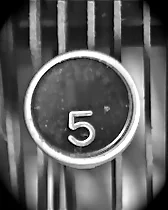5 HOT BOOKS: Elvis in Las Vegas, Environmental Racism, and More
/1. Elvis in Vegas: How the King Reinvented the Las Vegas Show by Richard Zoglin (Simon & Schuster)
Zoglin’s deep knowledge of the entertainment world enriches his entwined narratives of Elvis Presley’s 1969 comeback in Las Vegas and the city’s emergence as America’s theme park. As Presley was reborn on the concert stage after his screen career stalled, Las Vegas exploded with “big voices, big productions, big emotions.” Presley replaced Sinatra and the Rat Pack as rock ’n’ roll took off and the Vietnam War raged and Zoglin smartly keys in on how Las Vegas developed its unique and counterintuitive blend of “slick presentation and packaged emotions” with an informality that tapped into the psyche of the time.
2. A Terrible Thing to Waste: Environmental Racism and Its Assault on the American Mind by Harriet A. Washington (Little, Brown Spark)
In her powerful National Book Critics Circle award winner Medical Apartheid, Washington revealed the medical establishment’s shocking history of treatment of African Americans as experimental subjects. In her new book, she zeros in on the prevalence of environmental toxins in regions in which indigenous, black, and Hispanic people live. Washington contends that very poisonous toxins lower intelligence, as measured by IQ scores. In a disarmingly conversational tone, she mixes anecdote with science, particularly in practical bits of advice such as “poison-proof your water” and “avoid heavy metals,” plus a convincing set of warnings on “known chemical brain drainers.”
3. Stronghold: One Man’s Quest to Save the World’s Wild Salmon by Tucker Malarkey (Spiegel & Grau)
Malarkey forged a bond with her eccentric cousin Guido Rahr during their childhood on the Deschutes River in Oregon, and Stronghold is her remarkable account of Rahr’s tenacious pursuit to save the world’s wild Pacific salmon. In focusing on her cousin’s life passion, Malarkey conveys the art of his fly-fishing and the evolution of his expansive knowledge of the life cycles of varieties of salmon, against a backdrop that sweeps across the Bering Sea to Russia’s Kamchatka Peninsula. Paying due attention to the environmental crisis, commercial greed, and recreational fishers, Malarkey captures her cousin’s purity, determination, and adroit handling of both prominent Americans and Russian oligarchs, born of his drive to protect “stronghold” rivers – unspoiled by human development – so that salmon can flourish.
4. We Love Anderson Cooper by R.L. Maizes (Celadon)
A wonderful bunch of oddballs and outsiders fill Maizes’ charming debut collection of short stories, some involving the humor of Jewish life. The title story features a boy coming out as gay in his bar mitzvah speech, and in another the central complaint is that December is “hijacked” by Christmas. In “The Infidelity of Judah Maccabee,” an actuary frets about his cat cheating on him with his Protestant girlfriend. With great compassion, Maizes introduces other animals to these tragicomic relationships, with dogs and birds as agents of transference, as in “No Shortage of Birds,” when a middle-school girl becomes jealous of her mother’s bird after her father’s death. The cumulative force of these stories imparts great warmth and wit.
5. The Lager Queen of Minnesota by J. Ryan Stradal (Viking/Dorman)
Stradal has followed his best-selling debut novel, Kitchens of the Great Midwest, with another generous work of fiction returning to the land of Garrison Keillor and Lake Wobegon. Stradal focuses on a pair of sisters who fall out after one inherited their family’s dairy farm and the other did not. While one branches out into the beer business and does well financially and the other bakes pies to deal with her minimum wage, job a granddaughter enters the mix and joins the brewery. With a serendipitous magic reminiscent of Ann Patchett’s fiction, Stradal infuses this novel with a warmth and joy that impart an optimistic vision of the world, while assiduously avoiding becoming treacly.










